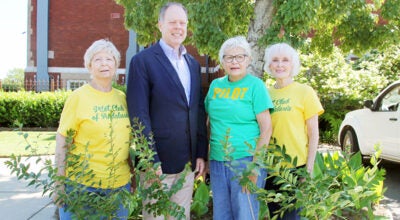Gas tax hike would give county $13.2M
Published 3:19 am Saturday, January 14, 2017

- The county could pave 60+ miles of low-volume road with the $13.2 million.
Covington County could see more than $13 million for local road and bridge projects, if the state legislature were to pass a proposed 3-cent per gallon fuel tax.
The measure is supported by the Association of Commissioners of Alabama, and is estimated to fund a $1.2 billion bond issue, if approved.
According to drivealabama.org, the bond issue would cost the average Alabama driver a nickel per day, or less than $1.50 each month.
At Wednesday’s Covington County Commission meeting, Chairman Greg White said at some point the commission should take a formal position on the issue.
County Engineer Lynn Ralls said any additional revenue would help.
“We’re facing a losing battle with our road way system,” he said.
Ralls said there is a 10-year life cycle on pavement.
Ralls said it costs an average of $170,000 to resurface a road, and that it doesn’t take a lot of roadway to spend a lot of money.
Ralls said with the $13.2 million that the county would receive, if the bill were to pass, 60-plus miles of road could be paved.
ACCA Executive Director Sonny Brasfield said counties need to shift focus and get behind a concrete infrastructure plan before the legislative session begins Feb. 7.
“We just feel like the only way to push this forward is for county leaders to advocate for a specific plan,” he said.
Under the plan backed by ACCA, revenue from the bonds would be divided among the 67 counties using the existing gasoline tax formula.
According to ACCA, while the formula is partially based on population, under this plan, every county would get a minimum of $10 million.
And 20 percent of the money would be spent within municipalities.
Additionally, the money would not be allowed to be spent on salaries, equipment or construction other than road projects.
In essence, the plan would piggyback off of the Alabama Transportation Rehabilitation and Improvement Program.
“Some roads that were not eligible for ATRIP funds would be eligible under the new plan, which is being called ATRIP-2,” Brasfield said.
County Commissioner Ken Northey said this would allow the county to pave lower-volume road.
Low-volume means roads with less than 2,500 vehicles per day.
It was agreed the local roads infrastructure is lacking.
Commissioners agreed they would hold a public hearing to allow constituents to voice their comments and concerns.




